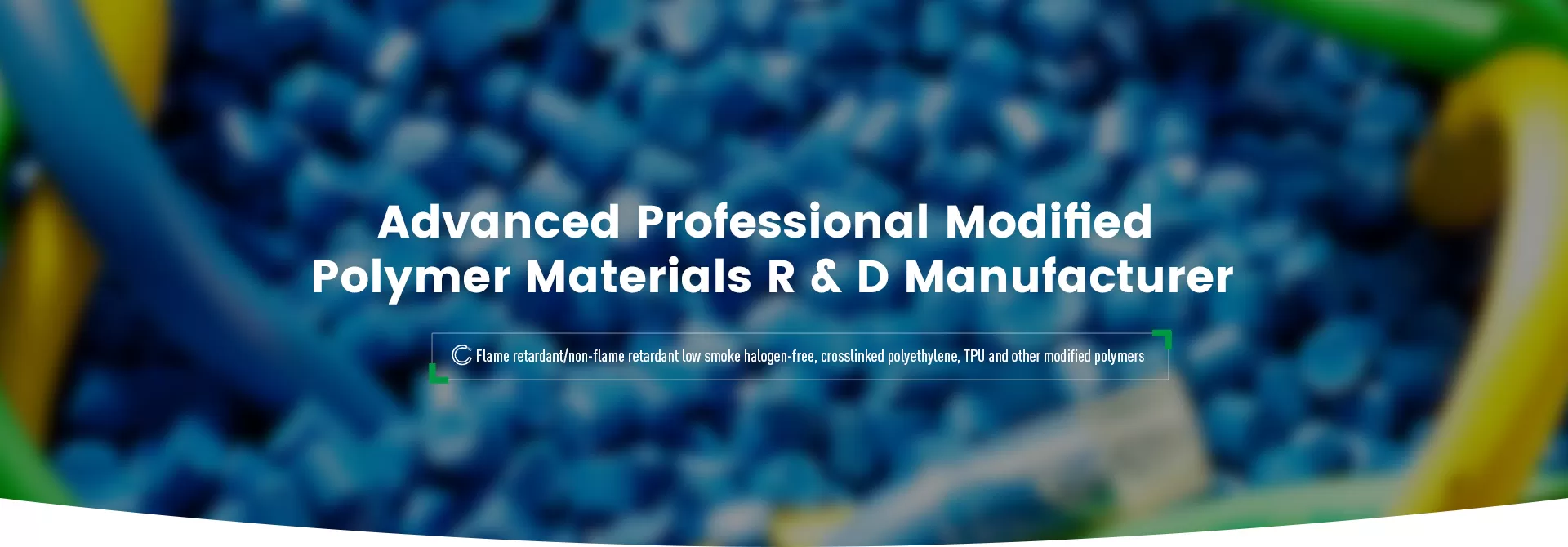
Product Description
90℃ TPU elastomer sheath material is based on polyether polyurethane elastomer, added with high-efficiency flame retardant and other processing aids, and is made by mixing, plasticizing and granulating. It has excellent properties such as halogen-free, high flame retardant grade, high resilience, hydrolysis resistance, heat resistance, weather resistance and oil resistance, and can add matte matte, frosted and other effects according to customer needs; no precipitation pollution, in line with relevant requirements of Rohs, etc.
Product Features
1. Resistant to seawater corrosion
2. Low density (below 1.17g/cm3)
3. Excellent oil resistance
4. Excellent elasticity and soft appearance
5. Good hydrolysis resistance
6. Good wear resistance and heat resistance
7. Meet SGS, ROHS and other requirements
Application Areas
Suitable for marine cables and ship cables for marine use.
Product Parameters
| Testing items | VALUE | Typical Value | UNIT | Method |
| Density | 1.17±0.05 | 1.16 | g/cm3 | GB/T 1033 |
| Hardness (6mm plate) | 86±3 | 86 | HA | GB/T 2411 |
| Brittle temperature | ≤-40 | -40 | ℃ | GB/T 5470 |
| UL temperature grade | 90 | 90 | ℃ | UL |
| Mechanical properties | ||||
| Tensile strength before aging | ≥25 | 31 | M Pa | GB/T 1040 |
| Elongation at break before aging | ≥400 | 603 | % | GB/T 1040 |
| Performance after aging 110℃×168h | ||||
| Tensile strength retention rate | ≥70 | 76 | % | GB/T 2951.12 |
| Elongation at break retention rate | ≥70 | 91 | % | GB/T 2951.12 |
| Tear resistance | ≥20 | 45 | N/mm | CQC1103-2015 Appendix B |
| Oil resistance: IRM902, 100℃*168H | ||||
| Tensile strength retention rate | ≥70 | 82 | % | / |
| Elongation retention rate | ≥70 | 87 | % | / |
| Hot water resistance: hot water, 80℃*168H | ||||
| Tensile strength retention rate | ≥70 | 80 | % | / |
| Elongation retention rate | ≥70 | 85 | % | / |
| Electrical performance | ||||
| Volume resistivity at 20℃ | ≥1.0×1010 | 4.2×1010 | Ω.cm | IEC 60093 |
| Flame characteristics | ||||
| Oxygen Index | ≥24 | 26 | % | GB/T 2406 |
Submarine cables are important facilities for cross-sea and cross-river power and communication transmission. The selection of their sheath materials is crucial to the service life and performance of the cables.
Thermoplastic polyurethane (TPU) is a material commonly used for submarine cable sheaths. It has excellent mechanical properties, wear resistance, oil resistance, hydrolysis resistance and microbial corrosion resistance, and can protect cables in harsh marine environments.
1. High seawater corrosion resistance, suitable for long-term use in seawater or freshwater environments.
2. High flexibility and bending resistance, suitable for mobile applications with frequent cable retraction and release.
3. Excellent tensile strength, usually reinforced with Kevlar tensile fiber.
4. Good shielding performance, which can effectively resist electromagnetic interference and ensure the stability of signal transmission.
5. Wear resistance, weather resistance, tear resistance, oil resistance, aging resistance and other properties, adapt to underwater environments.
In practical applications, submarine cables with TPU sheaths can be designed as single-layer or multi-layer structures to meet different mechanical protection and environmental adaptation requirements. For example, some designs may include a mixture of aluminum-doped EPDM (ethylene propylene diene monomer) and PP (polypropylene) to improve the impact resistance and abrasion resistance of the sheath.
In addition, accelerators and stabilizers may be added to improve the processing performance and long-term stability of the material. In the manufacturing process of submarine cables, the preparation of TPU sheaths usually includes steps such as mixing, extrusion molding, and hot pressing to ensure that the sheath is firmly bonded to the rest of the cable and provide the necessary mechanical protection and waterproof properties.